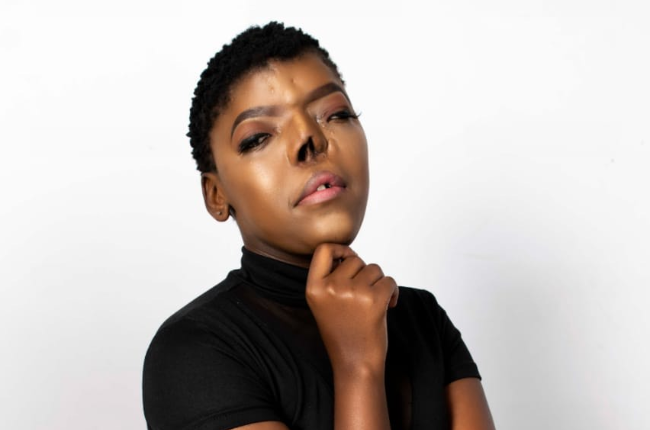
In some rural areas, a baby born with cleft is often considered a curse; they can be abandoned by their fathers, and even their mothers writes Kholofelo Mphahlele.
They live next door, but you can't see them. They live in our homes, but no one hears them. Indeed, you may think of them as invisible, but they are present in our households, coiled in humiliation and fear.
July was National Cleft & Craniofacial Awareness and Prevention Month. Cleft and craniofacial conditions affect thousands of infants, children, teenagers, and adults in the world each year.
Some are born with congenital anomalies like cleft lip and palate, others with more complex, life-threatening craniofacial conditions. Some are burned; others are injured in accidents and animal attacks or diagnosed with various oral/head/neck and skin diseases.
What are craniofacial defects?
Craniofacial defects are conditions present at birth that affect the structure and function of a baby's head and face.
The development of the face and facial bones are very intricate. Some defects can occur during early development in the utero, which may result in areas of the face being left with gaps. This is called facial clefts. The most common facial cleft that can occur are clefts of the lip, also known as, harelip and clefts of the palate. A cleft lip is a physical split or separation of the two sides of the upper lip and appears as a narrow opening or gap in the skin of the upper lip. While a cleft palate is a split or opening in the roof of the mouth. In many cases, the cause of cleft lip or cleft palate is unknown. However, it is believed that clefts occur due to a combination of genetic and environmental factors.
Clefting of the lip with or without palate (CLP) is the most common congenital craniofacial anomaly, with the global prevalence estimated at 1 in 700 live births.
Babies are meant to be "perfect" but sometimes that's not the case
When an infant is born with a cleft lip, palate or both, most parents ask themselves immediately about the severity of the cleft. They may have found out during the pregnancy or at birth, either way it is said to be hard.
With the right cleft team in place, feeding can be explained and the challenges that will be experienced will be explained to the parent/s. The craniofacial team understands the emotions and can help reassure the parent/s.
READ | ‘It’s not witchcraft’ – Seitebogo Peta on why she’s educating parents about cleft palate
A lack of education and awareness around cleft makes the lives of children and families more difficult. Many parents are shocked and surprised when their infants are born with clefts because prenatal screening is rare. Especially in rural areas, medical staff have limited advice or guidance for parents, who do not know how to help their infants.
The stigma, shame and trauma
Social stigma is context-dependent and is based on cultural perception of the cleft. Blame of the parent or the perception that the cleft is from a punishing supernatural force negatively influences the perception of the child with cleft lip and palate.
I asked a cleft child who has survived numerous cleft reparation surgeries, what it was like being a cleft warrior. This was his response:
More serious consequences are far too common. In some rural areas, a baby born with cleft is often considered a curse; they can be abandoned by their fathers, and even their mothers. Some grandparents refuse to give the child the family surname. Even with community support, the financial and emotional strain of providing specialised care limits a family's ability to be active members of their societies.
How cleft affects lives
Living with an untreated cleft can have a profound and lasting impact on a child and their family. Studies have shown that living with any facial difference can have a negative impact on mental health and overall quality of life. In addition, untreated cleft lip/palate can also have serious consequences for a child's physical health and development, as well.
The World Health Organisation recognises that living with an untreated congenital disability such as cleft puts children at greater risk for malnutrition, poor health, and poverty.
The challenges of cleft lip and palate begin at birth and can be life-long:
- Infants cannot feed properly and may become malnourished. They are also at a higher risk for respiratory infections. Infants with craniofacial conditions will need to eat differently than other children. Because different facial areas, like the oral and nasal cavities, may not be separated, special tools may be required to keep food out of areas it shouldn't go.
- Children are often bullied or teased, suffering negative effects on their physical and mental health, including anxiety, depression, and low self-esteem.
- Children and adults may have trouble speaking clearly, preventing them from integrating into their societies, getting an education, and finding employment. It's important to use normal speech stimulation with cleft babies—encouraging the coos and babbling. The child's speech production will be different than normal, and it may sound hyper nasal. Cleft children should be encouraged to play with sounds as all children do. Orally produced sounds are much preferred over glottal, or windpipe-based, sounds. Glottal stops (think of the air sounds between the words of "uh-oh") should be ignored and not reinforced as communicative because they will be very difficult to change as the child gets older.
- Having a child with cleft can cause an entire family to be ostracised, jeopardising their support network, mental health, and financial stability.
The medical fraternity
The Red Cross War Memorial Children's Hospital: Cleft Lip and Palate Clinic in the Western Cape is the only one of its kind in South Africa that meets the World Health Organisation requirements in relation to the services it offers. The services include emotional support and professional advice, Neonatal nursing, Surgery, Orthodontic/orthopaedic treatment, Speech and language therapy, Ear, nose and throat care, Clinical genetics, dental care, and a neonatal register.
The Department of Health needs to provide more clinics, such as the Red Cross War Memorial Children's Hospital so children born with a cleft lip and palate can be assisted from birth.
Doctors and nurses need to be supported and given more training on the craniofacial defect.
Clinical preparation and experience are critical to quality care for babies born with a cleft. The child needs to be seen right away by several specialists, who are well vested in these facial defects.
The more specialised the team is, the fewer the complications. Early treatment with an interdisciplinary team often leads to the best development for children with these conditions. Correcting physical abnormalities before babies start to rely on those parts of their bodies – for communication or other purposes – can prevent babies from learning irregular behaviours to compensate. Early intervention can also prevent developmental delays.
Organisations such as the Smile Foundation should be supported as they work to transform the lives of children affected by facial abnormalities and severe burns through the best possible surgical and psychological care.
Finding a community of people who share your experiences can help with emotional support, sharing tips, and solving problems together. For children especially, it can boost self-esteem and a sense of connection to meet others like them.
One simple fact makes all the consequences of untreated cleft even more devastating: children born with cleft do not have to suffer because help is available.
- Kholofelo Mphahlele is a Section27 Paralegal.
Disclaimer: News24 encourages freedom of speech and the expression of diverse views. The views of columnists published on News24 are therefore their own and do not necessarily represent the views of News24.




 Publications
Publications
 Partners
Partners























